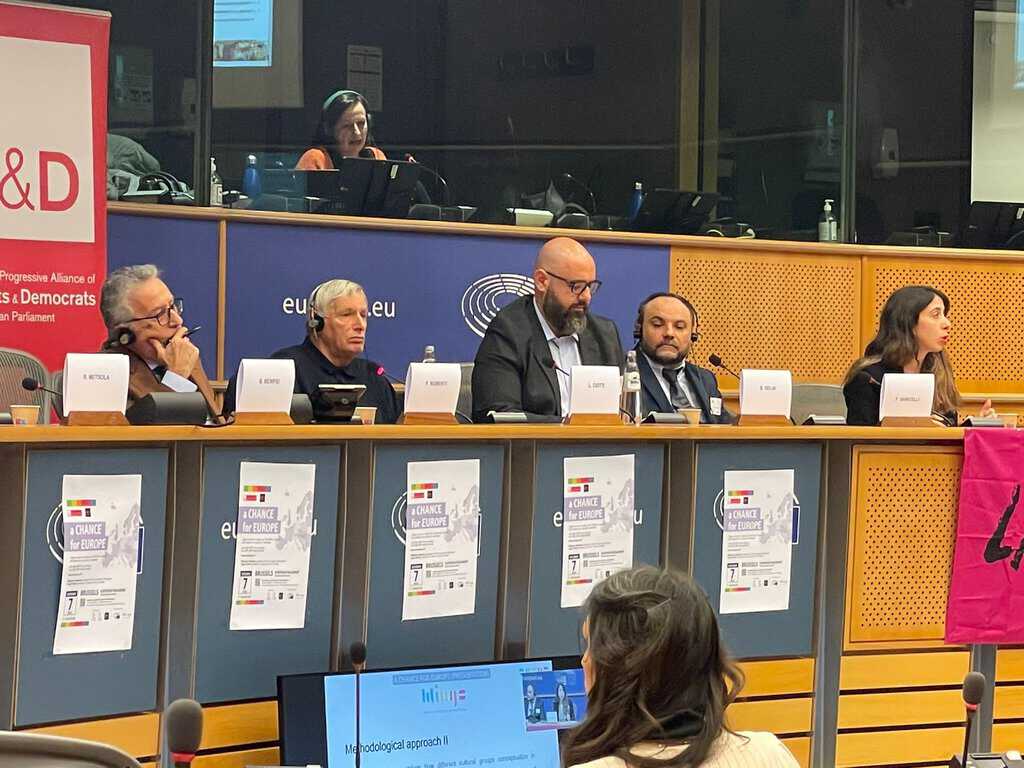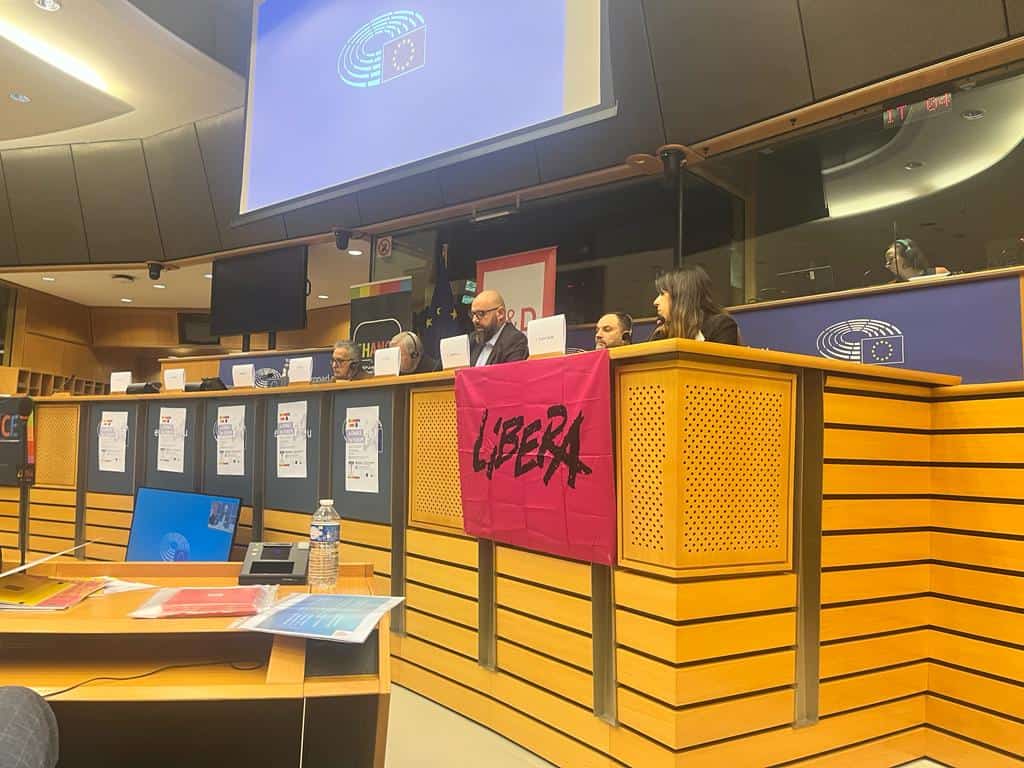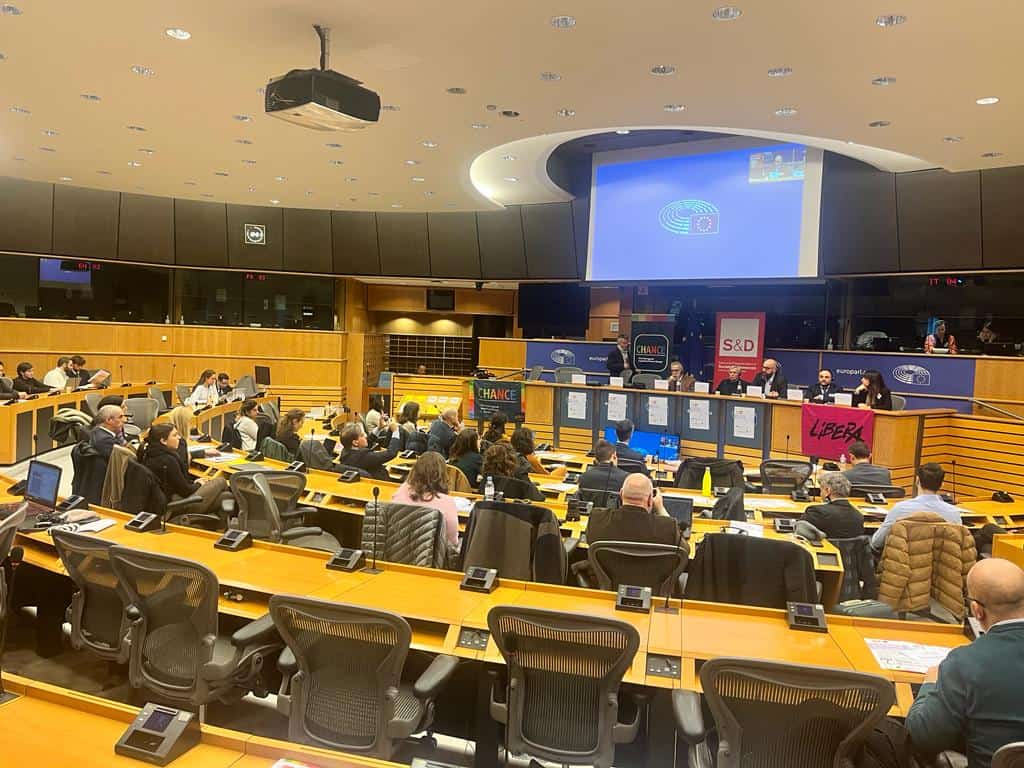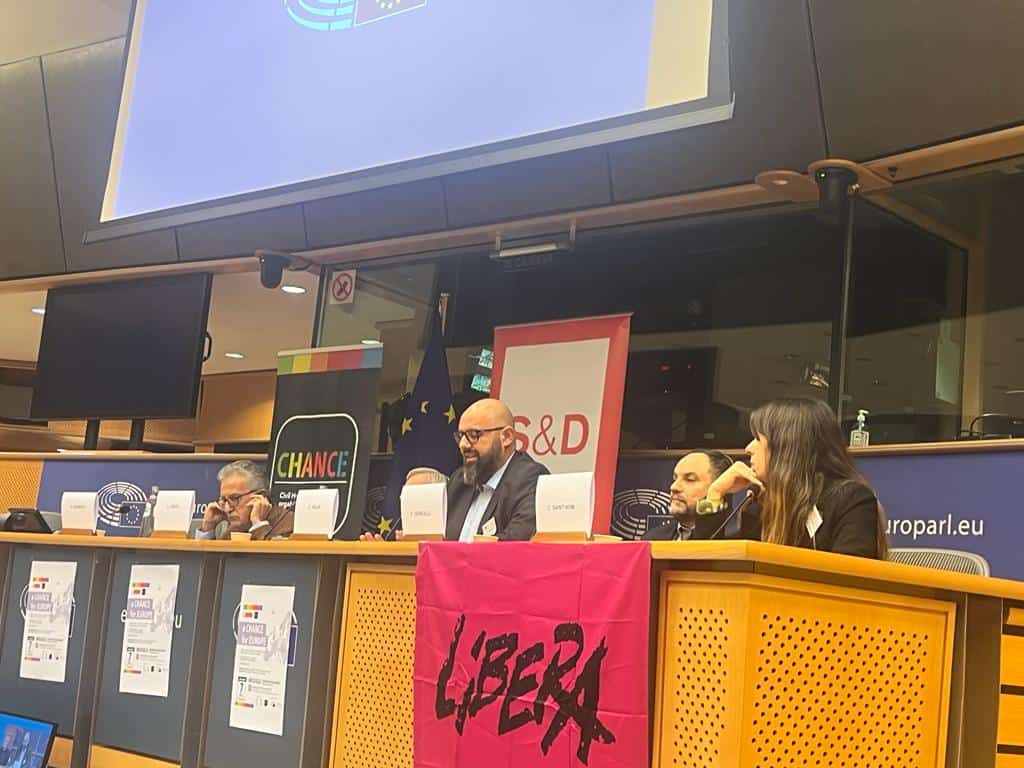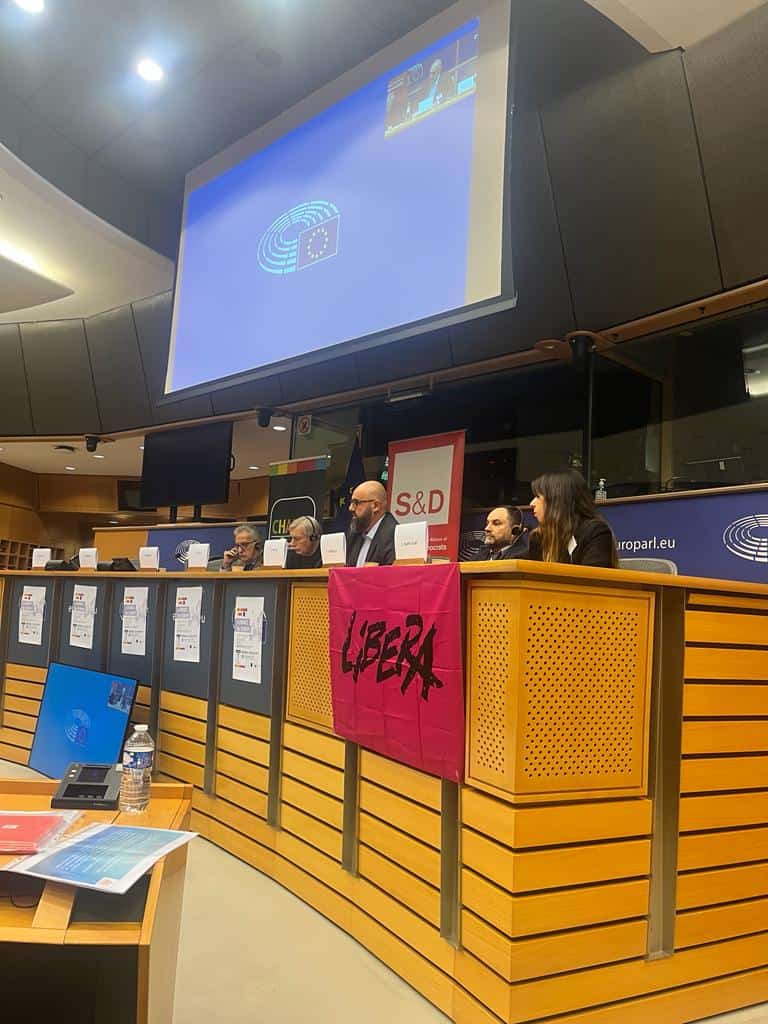This is a speech I delivered yesterday in the Brussels building of the European Parliament at the event launching the political manifesto of the CHANCE network of European anti-mafia civil society organisations. The event was sponsored by the Socialist and Democrats Group in the European Parliament and hosted by Socialist MEP and former Italian chief anti-mafia and anti-terrorism prosecutor Franco Roberti.
In 2021, Malta adopted a National Anti-Fraud and Corruption Strategy. Judging by the reality on the ground, I realise that’s hard to believe. It’s certainly hard to remember. We looked it up in a desperate attempt to find something with which to hold the authorities to a commitment they might come to regret having made.
Languishing at the bottom of page 33 of this Strategy is a characteristically sweeping phrase: “Criminalising fraud and corruption and sanctioning offenders does not work unless the social, cultural and economic factors that contribute to fraud and corruption are understood.”
But then, surprisingly, the tone changes to words that are electrifyingly focused. “Moreover,” the National Anti-Corruption Strategy says, “recognising the full consequences of fraud and corruption is imperative to rebut the belief that fraud and corruption are victimless.”
Away from the pages of a strategy document, Malta has not even tried to understand the social, cultural, and economic factors that contribute to corruption. Too often Malta pretends there is no corruption and therefore no factors to contribute to it. This is a country with government ministers caught red handed by the Panama Papers. The Panama Papers scandal is from seven years ago, ancient history. And yet those ministers have still not faced any charges for their crimes.
Speaking of ancient history, here in this building, MEPs were informed eleven years ago that
Commissioner John Dalli had been forced to resign for getting his staff to solicit bribes to soften the EU’s anti-tobacco laws. So many years later the Maltese authorities have secured zero convictions in that case.
They have secured zero convictions in many other high-profile cases of grand corruption. Malta’s highest court ruled there had been collusion between government officials and private interests when privatising public hospitals. The civil court ordered the reversal of the privatisation, but the criminal court has not been asked to convict the guilty.
A man awaits trial for ordering the murder of Daphne Caruana Galizia because he feared she would expose the bribes he paid or promised to pay the government ministers whose offshore nests were exposed by the Panama Papers. Those bribes helped him secure a major energy contract. He still owns that contract. He still profits from it.
You’d think the authorities would act to prevent the repetition of these horrors. You’d be wrong. They ignored proposals for new laws against racketeering and criminal infiltration in democratic institutions. They voted down laws against abuse of power, against obstruction of justice, and for unexplained wealth orders.
And they ignored their own maxim that they needed to understand the social, cultural, and economic factors that led to corruption. They denied there were any.
They missed the second part of that quote in their national strategy. They forgot that they wrote that double negative: that corruption is not victimless. That means corruption has victims.
And yet, outside the fluffy rhetoric of policy papers, our laws, our law enforcement agencies, and our court procedures remain hostile to the notion that corruption has victims.
Just this week the government is rushing through Parliament new laws that practically abolish temporary asset freezes for people charged with money laundering. It will now become the prosecution’s responsibility to prove which component of the accused’s wealth has been laundered from dirty sources. The accused will now be allowed to enjoy the rest of their wealth. The government is defeating the entire point of having laws against money laundering.
They can do this precisely because the public fails to perceive victims of money laundering. Ministers behaved as if the victims here are the alleged money launderers themselves. They cried rivers of sympathy for the accused whose assets are frozen pending conviction. Ministers elicited sympathy for people facing punishment while still presumed innocent.
Ministers know the public would react differently if they were making life easier for alleged drug traffickers, say, instead of alleged money launderers. Consider that the same punitive measures being removed for accused money launderers are being retained for people charged with drug trafficking who are also presumed to be innocent.
Here’s the picture now. If they catch a drug trafficker trafficking drugs, they will freeze their assets pending conviction. But if they catch a drug trafficker laundering the money they made trafficking drugs, they won’t freeze their assets because that would be too punitive.
I don’t think they’re too worried about drug trafficking money launderers. They are worried about politicians, their personal friends, awaiting trial or expecting charge for laundering the proceeds of their corruption and being prevented from travelling the world First Class buying gaudy jewellery and expensive bags.
They seem to think no one can be a victim of sheer bad taste. That since the bribes were paid by people from outside the government, the politicians who cashed the money have done no worse than a grander version of a little undeclared overtime or a quick trade in smuggled tax-free cigarettes. Nobody’s hurt.
The consequences of this are that everyone pays a little bit more than they should in their electricity bills to line pockets in Azerbaijan. People have been treated in public hospitals for which the government paid private operators hundreds of millions, but which are falling to pieces. The Maltese economy operates in the shadow of the horrible reputation earned from major scandals of cross-border financial crime and of the cowboy behaviour of oligarchs who purchased Maltese citizenship to hide who they really are and what they’re really doing.
For too many people, these are not consequences of the unlawful actions of a few corrupt criminals, who successfully infiltrated and captured the state. For too many people, higher electricity bills, poorer health services, and an economy operating beneath its potential are just context for their everyday existence. They are a given, like the weather. Something they not only can do nothing about, but something that it would also be bad form to complain about.
At least one of the underlying social causes of corruption is that too many of us accept it as inevitable. It’s not that the state fails to recognise the victims of corruption. It’s more that the victims of corruption fail to recognise themselves as such.
Ten years of near weekly scandals have numbed the population. People have lost the ability or the energy to feel indignant about being robbed. There have been so many scandals that the population rejects it has been gullible enough to become a serial victim of other people’s greed.
People think that so long as they’re not bleeding or burning, they might as well be grateful for all the good things they get.
Except of course one of us bled and burned. Daphne Caruana Galizia refused to accept that corruption is inevitable background. She recognised that corruption has victims even if that’s not something victims realise or are even willing to admit.
Daphne Caruana Galizia is an innocent victim of the mafia. She never volunteered to be a symbol but that is what she has become, reminding us that in the blink of an eye the bloodless victimhood of corruption can turn bloody and terminal. We can grow accustomed to living in the shadow of other people’s greed until the moment it devours us.
Never has the gap been so wide between the authorities’ apparent understanding of what must be done to fight corruption and ours. In the month they announced the end of temporary asset freezes for people charged with money laundering, we have renewed our call for criminal assets to be allocated for the benefit of society.
And joining the efforts of our sister organisations in the CHANCE network and in the worldwide anti- corruption community, we have again called on our authorities to shift the focus of the fight against corruption and bring to the centre the moral obligation of restitution to victims.
We assert our inalienable right to good governance. We know no country has infinite resources. We know there are necessarily limits to the quality of health care and education, to how much can be spent on infrastructure and social security. But those limits cannot be defined by how much is left after corrupt politicians run away with the loot. We have the inalienable right for public services that are the best they can be, as they would be if they were given to us fairly and honestly.
The language of rights is clear. If I punch you in the face and break your nose, I must be punished for that crime, and you have a right to compensation from me. But if I’m a police officer or a prison warder and I punch you in the face and break your nose while you’re in my custody, punishment for me and compensation from me to you are not enough. The state has failed in its responsibility to protect you. It is the state that must compensate you.
It should be no different for corruption. The culprits must pay. But it is also a failure of the state to prevent you from suffering the consequences.
The state must therefore do more than wait for you to complain. We argue the state must seek you out, let you know you’re a victim, and compensate you for your loss. There should be a victims’ coordinator, funded by the state but independent from the authorities where corruption is likely to lurk, and a victims’ fund, a banker’s guarantee for the losses you might suffer.
Early in the initial stages of criminal investigations, law enforcement agencies should be obliged to identify victims of corruption, inform them of the status of their investigations, and tell them how they can secure their rights.
And here our role as civil society goes beyond the proclamation of principles and the expression of ambitions. We not only speak of what should be done but we speak of doing it as well. Civil society organisations aspire to be partners in the fight against corruption. We look to be watch dogs on the conduct of governments. We seek to be shadows over the shoulders of grinning politicians and light in the faces of faceless funders and sponsors.
We look to do more than write and read national strategies. We look to be the strategy. We look to be the CHANCE for a clean Malta. A CHANCE for a fair Europe.
